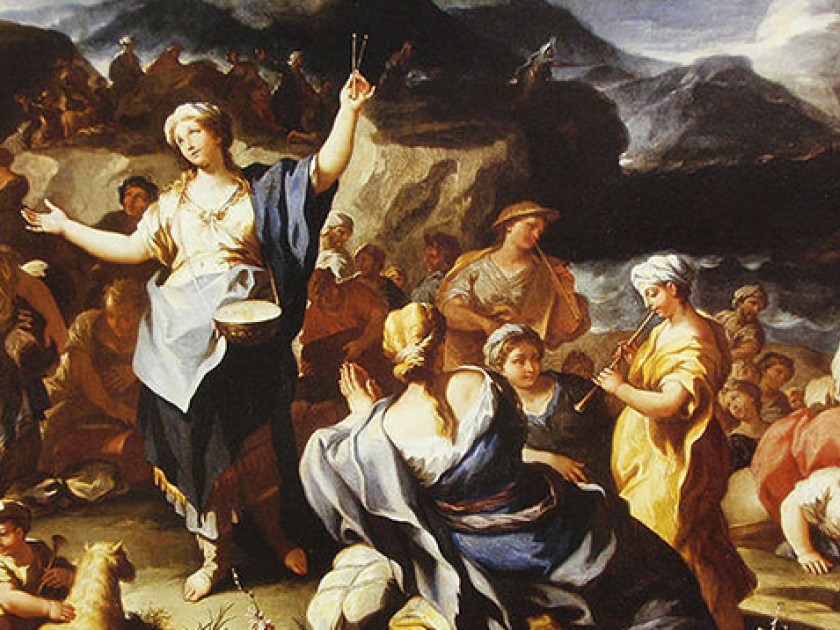Join a community of readers who are committed to Jewish stories
Sign up for JBC’s Nu Reads, a curated selection of Jewish books delivered straight to your door!

Image via Wikimedia Commons
Rabbi Barry L. Schwartz is the author of Path of the Prophets: The Ethics-Driven Life. He is writing here as part of Jewish Book Council’s Visiting Scribe series.
In an interview shortly before his death, the great theologian and activist Abraham Joshua Heschel was asked if he was a prophet. Heschel demurred and replied, “Let us hope and pray that I am worthy of being a child of the prophets.” In doing so, Heschel was reflecting Hillel’s classic teaching “But leave it to Israel: if they are not prophets, yet they are the children of prophets.” (Pesachim 66a)
The question of who is a prophet is no small preoccupation in Jewish thought. The Torah ends with the caution, “Never again did there arise in Israel a prophet like Moses — whom the Lord singled out, face to face.” (Deut. 34:10) The Book of Deuteronomy also warns about false prophets, as does Jeremiah: ”They are deluding you…they speak from their own minds” (23:16), and Ezekiel: “My hand will be against the prophets who prophesy falsehood and utter lying divination” (13:9).
Yet, the prophets play an outside role in biblical Judaism. The most common Hebrew word for prophet, navi, is found in the Bible over three hundred times. Scholars link this word to the Akkadian nabu, “to call,” and signifies, in the words of biblical scholar Nachum Sarna, “one who receives the (divine call) or one who proclaims, a spokesman. The prophet is the spokesman for God to man; but intercession before God in favor of man is also an indispensable aspect of his function.” This is the classical definition of the prophet (which has little to do with predicting the future — a more modern usage of the word). Indeed, the prophets who fit this definition, like Isaiah and Jeremiah, Ezekiel, Amos, and Hosea, are often referred to as the “classical” prophets.
However, there are other expressions in the Bible that point to people who possess prophet-like qualities. These include ro-eh (seer), khozeh (visionary), and ish-Elohim (man of God). Readers of the Bible will also encounter other people who are not explicitly called prophets but are described as bearing God’s spirit. Caleb is one of my favorite examples. While Caleb never formally communicates God’s message, his words and actions certainly do. He is called “My servant” and is said to possess “a different spirit.”
Other biblical figures may not be prophets in the classical sense, but are exemplars of the Bible’s highest ethical ideals. My broad definition of a prophet includes all who illuminate the ethics-driven life and thus walk the prophetic path. That is why I believe we should include, for example, Judah (the path of repentance), Joseph (the path of forgiveness), and Caleb (the path of faith). It is also why we should include the prophetic voices of often overlooked women in the Bible, from Shiprah and Puah (the path of civil disobedience), and Miriam (the path of joy), to Hannah (the path of prayer) and Ruth (the path of kindness). With this new, broader definition of prophet, we can much more readily identify with a diverse group of men and women who experienced a calling or moment that changed lives — and might inspire ours. This is what I do in my book, Path of the Prophets: The Ethics-Driven Life, which looks at the prophetic moment in the lives of eighteen biblical figures.
My goal is to have us personally connect with these audacious men and women who spoke truth to power. As Rabbi Shai Held writes in his new book, The Heart of Torah, “The Torah wants us to know that it is not just prophets who must step forward; what is true of Abraham and Moses ought to be true of us as well. Even the children of the prophets…must argue for justice and plead for mercy.” The prophetic spirit lives on in those who, as Heschel so aptly put it in his final interview, express “a very deep love, a powerful dissent, a painful rebuke, with unwavering hope.” In the process, we too become worthy of being called children of the prophets.
Rabbi Barry L. Schwartz is director of The Jewish Publication Society and rabbi of Congregation Adas Emuno, Leonia, New Jersey. He is the author of Judaism’s Great Debates: Timeless Controversies from Abraham to Herzl and Jewish Heroes, Jewish Values, among other volumes.